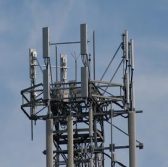 The National Institute of Standards and Technology is supporting the Federal Communications Commission‘s plan to facilitate the sharing of a 150-megahertz radio frequency spectrum band between U.S. military and private sector users.
The National Institute of Standards and Technology is supporting the Federal Communications Commission‘s plan to facilitate the sharing of a 150-megahertz radio frequency spectrum band between U.S. military and private sector users.
NIST said Thursday it has helped develop standards, test procedures and certification tools that will authorize broadband service providers and other entities to share the Citizens Broadband Radio Service band with government users.
“This will be the first time that commercial broadband users share spectrum dynamically with government users, and if it works, the FCC may allocate other currently protected RF bands for shared use,” said Michael Souryal, head of the spectrum sharing support project at NIST.
Souryal added that additional spectrum sharing could help decongest wireless channels for densely populated areas and facilitate reliable connections for new communications technologies such as 5G wireless and the Internet of Things.
In 2015, FCC laid down rules that provide commercial wireless users an opportunity to access the 3.5 gigahertz CBRS band when it is not in use for its primary purpose – the U.S. Navy‘s offshore radar operations.
FCC rules give Navy users the first right to CBRS and permit private access only during downtimes.
A public-private standards body for CBRS, called the Wireless Innovation Forum Spectrum Sharing Committee, passed 10 standards for CBRS operations, including an algorithm designed to protect existing military users.
NIST designed a computer reference model of that algorithm to become a part of the certification process.




